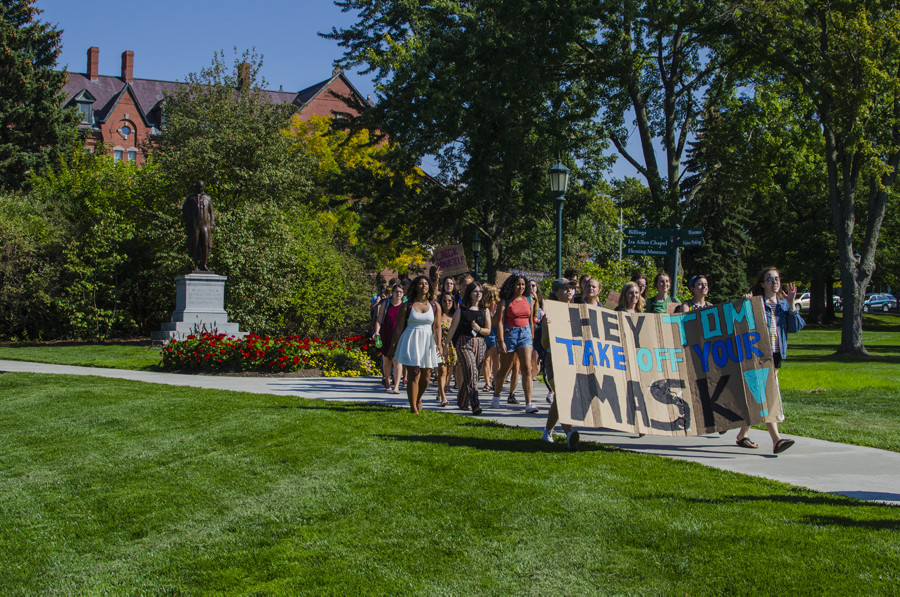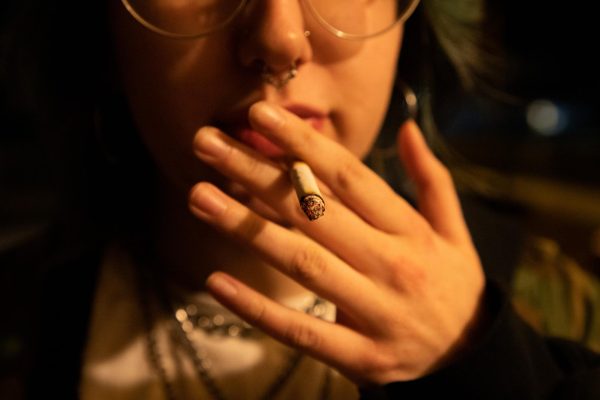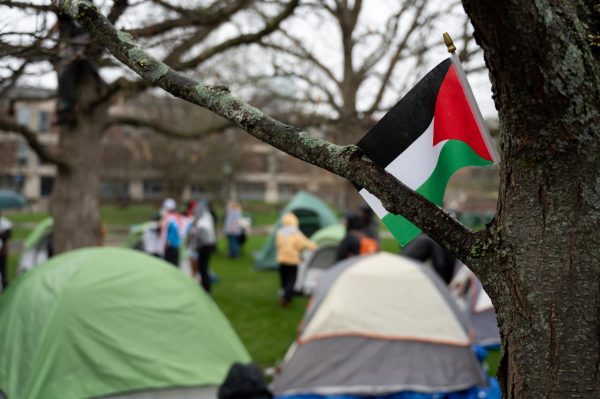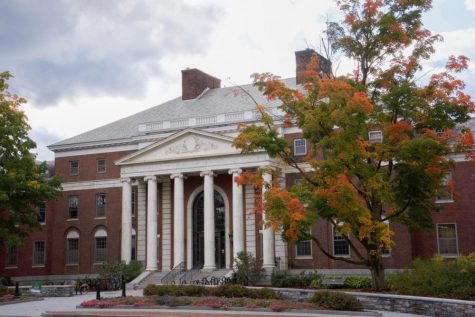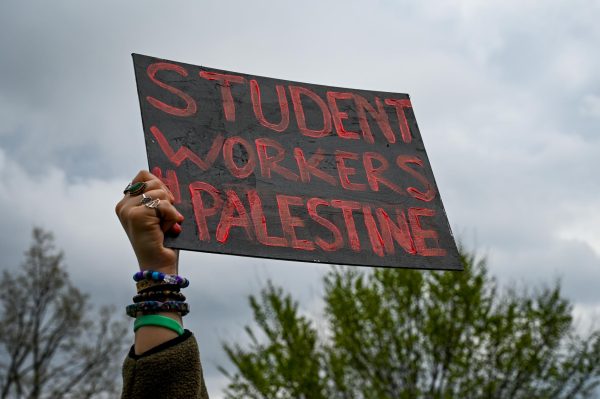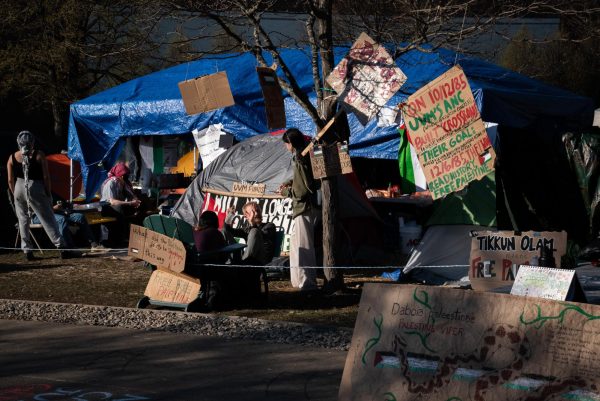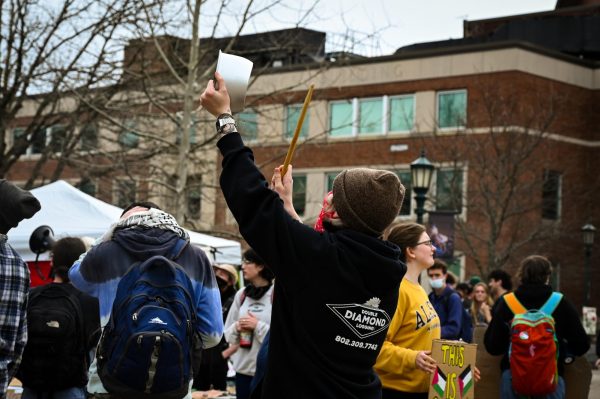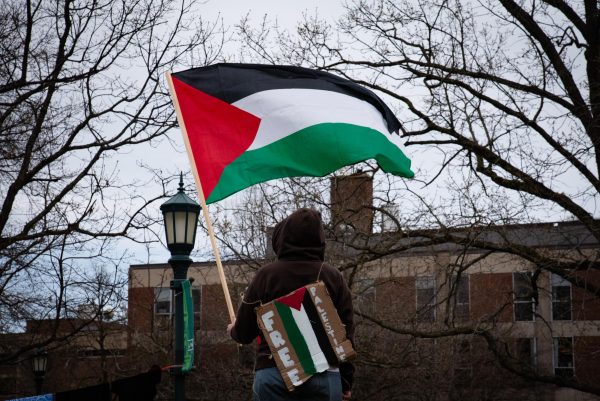Sullivan responds to diversity protest
October 2, 2017
President Tom Sullivan met with 12 leaders of student diversity organizations Wednesday regarding the list of demands presented to him.
Leaders of the Black Student Union, the Asian Student Union and Alianza Latinx coordinated a march to the Waterman building Sept. 25.
The group brought a list of demands for how the University can improve the climate of inclusion and diversity on campus.
The list calls for diversity training and a higher retention rate of black and brown faculty on tenure. It also called for UVM to expel junior J.T. Reichhelm for stealing the Black Lives Matter flag last year.
It also called for the renaming of the George Perkins building.
“It is important that the general body knows this isn’t just a student of color issue, this is a UVM community issue,” said sophomore Harmony Edosomwan, BSU president.
Sullivan emailed the student body at 7 p.m. Sept. 26 in response to the march.
“Today, I received a list of concerns from a group of students engaged in issues around racial equality and social justice,” Sullivan stated in the email.
He also stated he would schedule a meeting with the student leaders who led the march.
“Sullivan’s response did not meet our demands,” Edosomwan said. “He did not provide an action plan, but instead defended what the administration is doing.”
Edosomwan said she thought Sullivan was “‘yessing’ [the leaders] to death” and not giving them a detailed plan of action.
The goal of the meeting was to get concrete steps for how the University was going to meet the list of demands, said junior Blaise Cureg, ASU president.
The leaders “took control of the meeting,” said sophomore Amanda Martinez, Alianza Latinx president.
The leaders asked Sullivan to publicly respond to the list of demands by Oct. 4 and explain the steps UVM is going to take.
Sullivan was receptive to the leaders and agreed with the demands presented at the meeting, Cureg said.
“[It is now] a matter of accountability and making [the demands] happen,” she said.
Since the meeting, UVM has taken down the Kake Walk plaque hanging on Bailey/Howe Library.
The Kake Walk was a UVM tradition where fraternity members dressed up in blackface and emulated slave dances. It was held annually until 1969, according to a Feb. 24 Cynic article.
Sullivan was unaware of the plaque until Edosomwan brought it up to him, Edosomwan said.
“I wonder if he is actually interacting with students, especially students of color,” she said.
Sullivan sent out an email Friday after his meeting with the leaders, addressing each listed demand.
In the post-meeting email, Sullivan said the University was already taking action on most of the demands. In the email, Sullivan committed to expanding diversity training for administration, faculty and other staff.
SGA President Chris Petrillo said that “it is good to see students getting involved in issues so early in the year,” though he said he did not fully understand where some of the demands were coming from.
Petrillo said that SGA provides funding for student groups equitably.
“As far as I am aware, [ALANA groups] haven’t used their full budget in the past,” he said. “We want to work with [ALANA groups] to make sure they get the funding they need.”
UVM’s Fraternity and Sorority Life administrators work to promote inclusivity in FSL activities, according to Kimberlee Monteaux, assistant director for FSL.
“UVM FSL offers various educational programs throughout the year,” Monteaux said, naming a bi-annual our award-winning social justice retreat and numerous other ways to learn more about diversity, social justice and inclusion as examples.
FSL is piloting a new program titled Diversity & Inclusion Education Path, which outlines requirements for membership in FSL organizations for each year a student is at UVM.
The first-year program requires “an introduction diversity educational program facilitated by a Fraternity & Sorority Life staff member during the new member process,” according to a document provided by FSL.
Programs for upperclassmen require members attend a session on “the history of fraternity and sorority life and the intersections with social justice” and documented work to continue their understanding of diversity beyond that, according to the document.
FSL met with students from the Multicultural Committee for Climate and Campus Change April 25, according to Monteaux.
“This is just the beginning,” Cureg said.
The president’s office declined to speak after multiple requests for comment and directed the Cynic to a press release.


